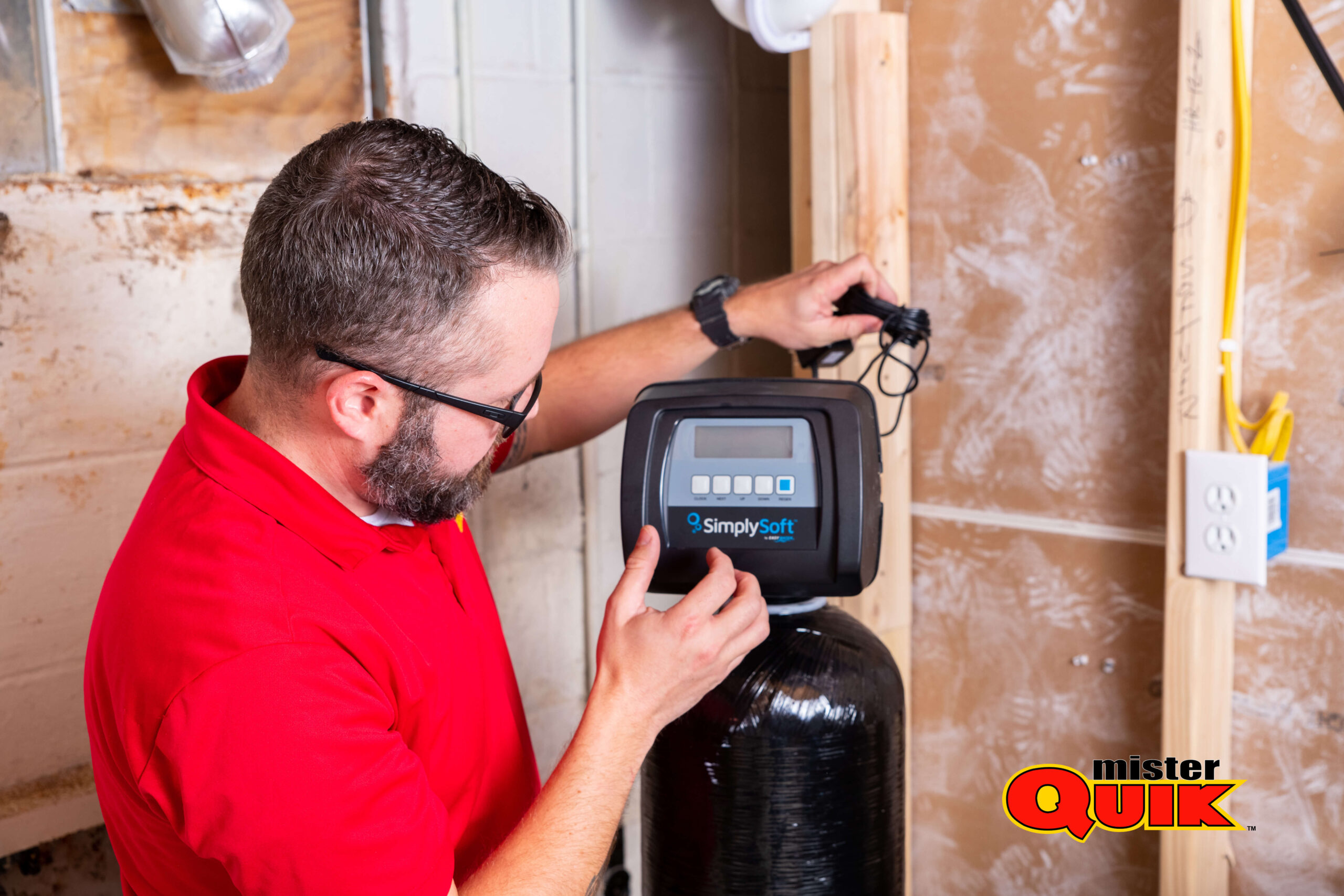
Are you experiencing issues with hard water in your home? From limescale buildup to appliance damage, hard water can cause various problems that affect your daily life. Here’s why Avon Water Softeners system might be necessary:
Avon Water Softeners can help alleviate these issues by removing the minerals that cause hard water. With Avon Water Softeners installed in your home, you can experience benefits such as:
If you’re experiencing problems with hard water, consider installing Avon Water Softeners to improve water quality and enhance your overall comfort.
Understanding the difference between hard water and soft water can help you address water quality issues in your home. Here’s a breakdown:
Hard water contains high levels of minerals like calcium and magnesium, which it picks up as it travels through soil and rock.
Armed with the right equipment, plumbers will employ effective clearing methods to remove the obstruction causing the standing water in your sink. From drain snakes and augers to hydro-jetting, they have the expertise to tackle even the toughest clogs without causing damage to your pipes or fixtures.
Unlike harsh chemical drain cleaners that can corrode pipes and harm the environment, professional plumbers use safe and eco-friendly solutions to unclog bathroom sinks. They'll recommend appropriate products or methods that effectively dissolve blockages without posing risks to your plumbing system or the planet.
In addition to clearing the current clog, plumbers will offer valuable advice on preventive measures to keep your bathroom sink flowing smoothly. This may include tips on avoiding common causes of clogs, such as limiting the amount of hair and debris that goes down the drain, and regular maintenance to prevent buildup.
Installing a water softener can be worth it for many homeowners, especially those who live in areas with hard water. Hard water contains high levels of minerals like calcium and magnesium, which can cause limescale buildup in pipes, appliances, and fixtures. A water softener removes these minerals through a process called ion exchange, resulting in softened water that can extend the lifespan of appliances, improve water quality for bathing and cleaning, and reduce the need for harsh cleaning agents.
Yes, it is generally safe to drink softened water. Softened water undergoes a process where calcium and magnesium ions are exchanged for sodium or potassium ions, reducing the water’s hardness. The amount of sodium or potassium added to the water during the softening process is typically minimal and within safe limits for consumption. However, individuals on sodium-restricted diets or those concerned about sodium intake may want to consider alternative sources of drinking water
The lifespan of a water softener depends on factors such as its quality, usage patterns, and maintenance. On average, a well-maintained water softener can last between 7-10+ years.
Yes, water softeners require periodic maintenance to ensure optimal performance and longevity. Regular maintenance tasks for water softeners include replenishing the salt or potassium reservoir as needed, cleaning the brine tank to remove accumulated sediment and debris, checking for salt bridging or mushing, and inspecting the resin tank for signs of fouling or damage.
Reverse osmosis (RO) systems use a membrane filtration process to remove contaminants, including minerals, bacteria, and chemicals, from drinking water, producing purified water that is free from impurities. While RO systems can provide exceptionally clean and pure drinking water, they do not address water hardness issues caused by minerals like calcium and magnesium. Water softeners, on the other hand, specifically target water hardness by removing minerals through ion exchange. In some cases, a combination of both systems may be beneficial for homeowners seeking both softened and purified drinking water.
Curious about how Avon Water Softeners operate? Let’s break it down into simple steps:


Curious about how a water softener system operates? Let’s break it down into simple steps:



Water enters the water softener tank, which contains resin beads coated with sodium ions. Calcium and magnesium ions in the water are attracted to the resin beads and exchange places with the sodium ions, effectively removing the hardness minerals from the water.


Over time, the resin beads become saturated with calcium and magnesium ions, reducing their effectiveness. To recharge the resin beads, the water softener enters a regeneration cycle. During regeneration, a brine solution (a concentrated saltwater solution) is drawn from the brine tank and flushed through the resin tank. The sodium ions in the brine solution replace the calcium and magnesium ions on the resin beads, restoring their ability to remove hardness minerals from the water.



After regeneration, the resin tank is rinsed with fresh water to remove any remaining brine solution and ensure that the water softener is ready to continue softening water.
If you’re dealing with hard water issues in your home, investing in a water softener system can offer numerous benefits that improve your daily life. Here’s a closer look at how a Water Softener can enhance your home and well-being:
1. Improved Water Quality
soft water. This leads to cleaner, fresher-tasting water that is more enjoyable to drink and use for cooking.
2.Extended Appliance Lifespan:
3.Reduced Limescale Buildup:
4.Softer Skin and Hair:
Are you considering investing in a water softener system but wondering about the cost? Let’s explore the factors that influence the cost of water softeners in Avon:
Water softeners come in various types, including salt-based, salt-free, and dual-tank systems. The type you choose will affect the overall cost of installation and operation.
The size and capacity of the water softener system you need depend on factors like the size of your household and your water usage. Larger households or homes with high water usage may require a larger, more expensive system.
The complexity of the installation process can impact the cost of a water softener. Factors like plumbing modifications, electrical work, and labor costs will all contribute to the total cost of installation.
When considering the cost of Avon Water Softeners, it’s essential to weigh the upfront expenses against the long-term benefits. Mister Quik Home Services offers a range of options to suit different budgets and needs, ensuring that you can find a solution that fits both your requirements and your budget. By investing in Avon Water Softeners, you can enjoy the benefits of softened water throughout your home, from cleaner dishes and laundry to softer skin and hair.
General Contractor License: GC1200161
Electrical License: E0020131
HVAC License: H0020150
Plumbing License: CO50900281


General Contractor License: GC1200161
Electrical License: E0020131
HVAC License: H0020150
Plumbing License: CO50900281